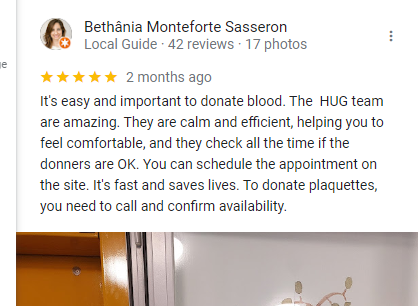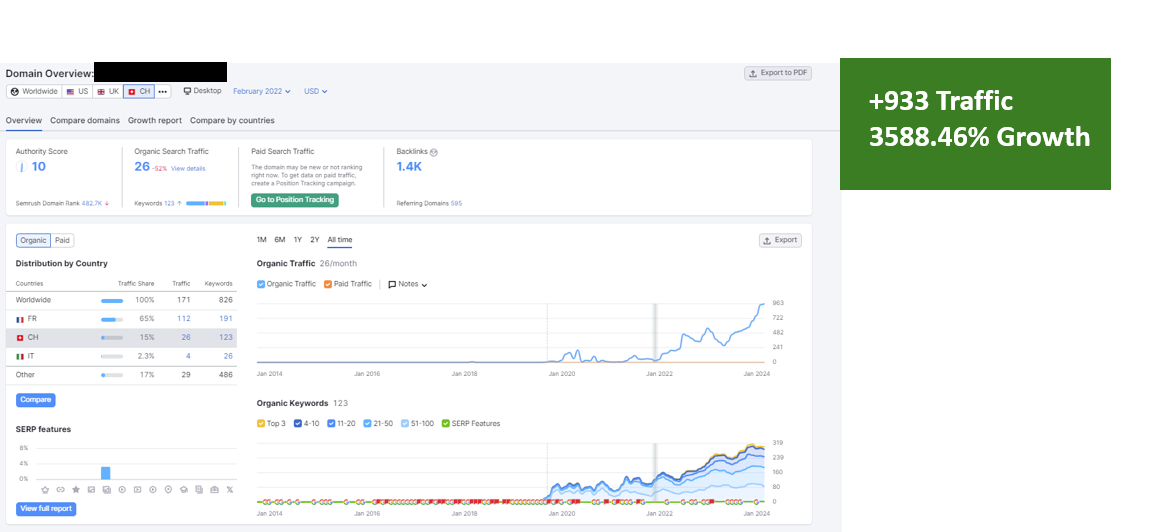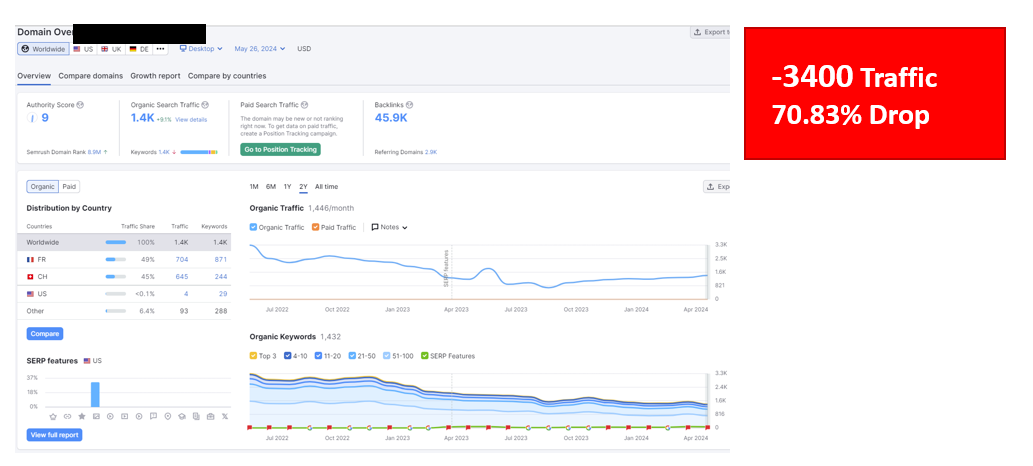As the digital landscape evolves, clinics and hospitals must adapt to remain competitive. Medical SEO, also known as Healthcare SEO, is a critical strategy for increasing online visibility and attracting patients seeking medical care. This guide provides a detailed overview of how healthcare providers can optimize their online presence, following best practices. By implementing effective SEO strategies, clinics and hospitals can reach a broader audience, ensuring that patients can find the medical services they need.
Why Is SEO Important in the Healthcare Industry?
In a competitive healthcare market, appearing at the top of search engine results pages (SERPs) ensures that your hospital or clinic is seen by more potential patients. Most people do not look beyond the first page of search results, so high visibility is vital.
Effective SEO strategies attract more visitors to your website. This increase in traffic can lead to more appointments and, ultimately, more patients. In fact, it was found by studies that 77% of people use search engines to start their healthcare journey and 7% of all daily google searches are health related.
Understand Your Customers
Understanding your customers, or patients in the context of healthcare, is fundamental to developing an effective SEO strategy. Here’s how you can gain deeper insights into your patient base:
- Search Intent: Understand what potential patients are searching for online. Are they looking for information on specific medical conditions, treatment options, or healthcare providers? Analyzing search intent helps you create content that directly addresses their queries.
- Patient Journey: Map out the typical patient journey from the initial search steps to booking an appointment. Identify key touchpoints and create content that guides them through each stage, providing valuable information and support along the way.
- Behavioral Data: Use analytics tools to track how patients interact with your website. Which pages are they visiting most? How long are they staying? What content is driving the most engagement? This data helps refine your content strategy to better meet patient needs.
Healthcare SEO Guide Tips
Implementing effective healthcare SEO involves a combination of strategies and best practices. Here are some key tips to help optimize your hospital or clinic’s online presence:
- Conduct Thorough Keyword Research: Identify relevant keywords that potential patients are using to search for healthcare services. Focus on a mix of generic keywords (short-tail) and more specific, detailed phrases (long-tail). Use tools Like Google Keyword Planner, Ahrefs and other keyword research tools to find ranking keywords in your niche that have high search volumes.
- Optimize On-Page Elements: Ensure that each page of your website is optimized for SEO. This includes using primary keywords in title tags, meta descriptions, header tags, and throughout the content. Make sure your meta descriptions are compelling and include a call to action.

- Create High-Quality Content: Develop content that is informative, engaging, and patient centric. Address common patient questions, provide detailed information on medical conditions and treatments, and use a compassionate tone. Incorporate multimedia elements like images, videos, and infographics to enhance engagement.
- Focus on Local SEO: Local SEO is a critical strategy for healthcare centers aiming to attract patients from their surrounding geographic area. Given that most patients prefer seeking medical care close to home, optimizing for local search can significantly increase your visibility and patient volume. Here’s a detailed guide on how to effectively use local SEO for your hospital or clinic.
Optimize Your Google My Business (GMB) Profile: Google My Business is a free tool that allows you to manage how your healthcare center appears on Google Search and Maps. Optimizing your GMB profile is one of the most effective ways to enhance your local SEO.
Create Local Content: Create high-quality content with topics trending in the geographic area you’re mainly targeting. Write about local health issues, community events, or healthcare news relevant to your area. For example, “Skin care and aging, What You Need to Know” or “Anti-aging treatments at our clinic”. It’s also vital to share testimonials and reviews from local patients (with their permission). Highlighting success stories can build trust and attract more local patients.
Optimize for Mobile: Many local searches are conducted on mobile devices, so ensuring your website is mobile-friendly is crucial for local SEO. Mobile-friendly features, such as click-to-call buttons, online appointment booking, and accessible contact information, make it easier for patients to interact with your healthcare center. Moreover, Google prioritizes mobile-friendly websites in its search results. If your website is optimized for mobile, it is more likely to rank higher and attract more visitors.
Build Local Citations: Citations are online mentions of your healthcare center’s name, address, and phone number (NAP). Consistent citations across various directories and platforms help improve your local SEO.
- Encourage Patient Reviews: Having positive and real reviews of your hospital or clinic on your Google Business Profile can make search engines and potential patients trust your business and eventually become possible leads.
Online reviews highly impact the patient acquisition of healthcare service providers. According to Software Advice, 90% of patients look at online reviews when choosing healthcare services. Reading these reviews helps them judge the quality of a provider. In fact, 71% of patients use online reviews to find a new doctor.
There are many ways to encourage patients to leave honest reviews. You can start by putting up stickers of a QR code in the lobby, sending a follow-up email, or texting them after their appointment. The main goal is to make it easy for patients to leave a review and ask them soon after their visit.

Technical SEO
This involves optimizing the backend of your website to improve its performance and user experience. Key elements include:
Site speed: is a critical factor for both user experience and search engine rankings. A slow-loading website can frustrate patients and increase bounce rates.
Secure Your Website with HTTPS: HTTPS is essential for protecting patient data and establishing trust. Google also gives preference to secure websites in its search rankings.
Structured data: helps search engines understand the content of your website better and can enhance your visibility in search results through rich snippets.
Rich Snippets (also known as “Rich Results”) are normal Google search results with additional data displayed. This extra data is usually pulled from Structured Data found in a page’s HTML.
Off-Page SEO
focuses on building your website’s authority and reputation through activities outside your website. For healthcare websites, this involves obtaining high-quality backlinks, engaging with the community, and leveraging various platforms to enhance visibility and credibility. You can effectively use off-page SEO to improve your healthcare website’s performance:
Building High-Quality Backlinks
Backlinks that come from reputable and relevant websites, can significantly boost search engine rankings, driving more organic traffic to the clinic’s or hospital’s website. To achieve this, healthcare institutions can engage in strategies such as publishing informative articles on health-related blogs, collaborating with medical associations for joint publications, and participating in community events that are covered by local news outlets. Additionally, listing the clinic or hospital on respected medical directories and acquiring positive reviews on health forums can further solidify their online presence and attract potential patients.
Engage with the Community
Building relationships within the community can enhance your reputation and attract local backlinks. This can be done by participating in local events, hosting webinars and workshops, and partnering with other local businesses.
By implementing these healthcare SEO tips, your clinic can enhance its online presence, attract more patients, and promote their healthcare services. Remember, SEO is a long-term investment that requires consistent effort and adaptation to stay ahead in the competitive healthcare landscape. At SEO Transformer, our goal is to guide your business through a full SEO journey from auditing, SEO strategy set up uniquely for your business’s needs and goals, and monitoring your website’s performance to continuously improve SEO efforts.
Results for our SEO work with Healthcare Clinic in Switzerland

Competitor’s website for the same period who did not work on SEO.

Contact your Healthcare Digital Marketing Agency
Contact us today to learn how we can optimize your website, build your online presence, and attract more patients. Let’s work together to enhance your digital footprint and provide better healthcare services to your community.





